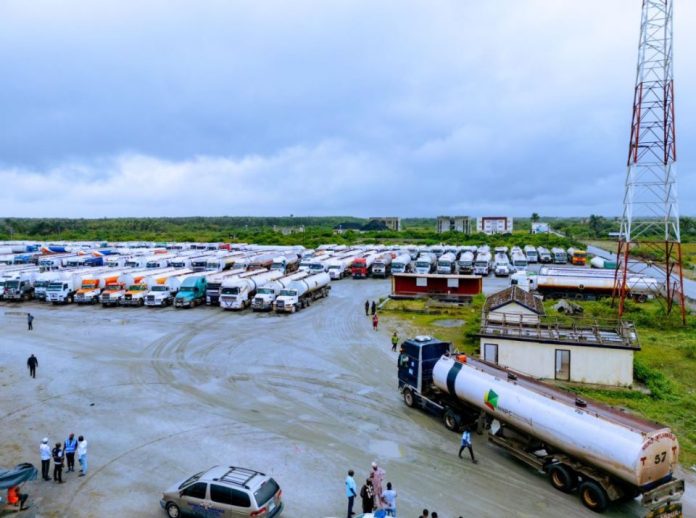Tensions within Nigeria’s downstream oil sector have intensified as independent oil marketers ramp up petrol importation, spending a staggering N436.37 billion on Premium Motor Spirit (PMS) in just nine days — a move that threatens the viability of the $20 billion Dangote Petroleum Refinery.
The ongoing rift between major fuel importers and Dangote Group deepened after fresh data revealed that over 496.17 million litres of petrol were discharged at Nigerian depots between May 11 and 20, 2025, according to shipping data obtained from Blue Sea Maritime.
Despite the Dangote refinery’s increased production capacity, industry players continue to bypass the facility in favor of international imports, citing uncompetitive pricing, unfavorable business terms, and operational bottlenecks such as gantry loading delays.
Dangote Group President, Aliko Dangote, had previously lamented that entrenched interests — which he described as “oil cabals” — were undermining the refinery’s efforts to break Nigeria’s long-standing dependence on imported fuel. “We’re still fighting for survival,” he said at a recent industry event, raising concerns about market sabotage and regulatory inertia.
Fuel importation, which Dangote hoped his refinery would replace, continues to surge. Between October 2024 and February 2025, N4.51 trillion was spent on imports, followed by N2.42 trillion between March 1 and May 9, and now N436 billion in just nine days — further exacerbating pressure on Nigeria’s foreign exchange reserves.
The recent surge in petrol imports comes amid reports of unscheduled maintenance at the Dangote refinery, leading to reduced output. As a result, Nigeria and nearby countries like Togo reverted to importing from European markets. S&P Global reports that Nigeria and Togo’s combined gasoline imports jumped from 200,000 barrels/day in January to over 300,000 b/d in March, and 250,000 b/d in April, close to Nigeria’s national consumption average.
Marketers are also exploiting offshore hubs such as Lome, Togo, to reduce tax exposure and facilitate breakbulk operations, often paid in U.S. dollars, sidestepping Nigeria’s regulatory push for naira transactions.
Industry insiders warn that if the Dangote refinery is not supported through favorable policies and market structures, Nigeria may continue to bleed foreign exchange and miss out on the full economic benefits of the continent’s largest refining project.

